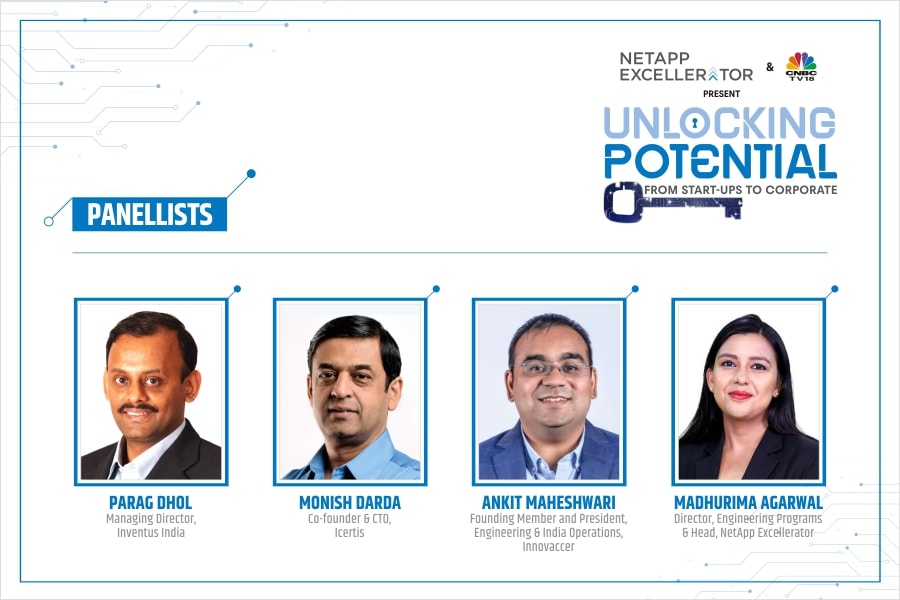
Forging partnerships and collaborations between start-ups and corporates to unlock potential
While large corporates are revered for their experience, financial strength and stability, amongst other sterling attributes, start-ups are usually associated with greater agility and speed in innovation.

In more recent times, business ecosystems have been benefitting from partnerships and collaborations between these two different genres of business. There is a clear realization that the time is right for captains of industry to welcome smaller yet disruptive market players to the fold and collaborate rather than compete with them to meet unified long-term goals.
To better understand various issues around these potentially win-win partnerships, Network18 in collaboration with NetApp initiated a roundtable discussion on the changing paradigm of corporate innovation and how start-ups can be a key contributor. Moderated by Paromita Chatterjee, Senior Journalist, the participants comprised leading players from across the spectrum, including Parag Dhol, Managing Director, Inventus India; Monish Darda, Co-founder & CTO, Icertis; Ankit Maheshwari, Founding Member and President - Engineering & India Operations, Innovaccer and Madhurima Agarwal - Director, Engineering Programs & Head, NetApp Excellerator.
While collaborations between large corporates and start-ups are not new and have been formed in the past as well, over the last year and a half, the pace of acceleration of mergers and acquisitions and partnerships has become much faster. Representing a company that has a bird’s eye view of the industry and has been an active player in building bridges between start-ups and corporates, Parag Dhol explained why the current, post-pandemic era is a crucial time to focus on such collaborations. “Digitization has received a fillip due to what is happening around us and since the last 15-18 months, the speed at which businesses have had to adjust is much faster than ever before. Other trends that are coming together centre around the development of a multitude of technologies, such as cloud, Artificial Intelligence, Machine Learning, etc. I would say that with all these things coming together into the mix, it is not too hot or too cold…it’s just right. That’s the situation today and it’s the right time for start-ups and corporates to be talking to each other.”
Madhurima Agarwal agreed that the pandemic has accelerated digital transformation and those who were thinking of moving ahead on their tech agendas have really pressed the accelerator on it. She went on to elaborate on how these collaborations become win-win situations that benefit both parties, like a symbiotic relationship. “With start-ups and corporates coming together, it is great for the ecosystem, as a whole, because start-ups bring new thinking and innovation to the table while enterprises bring skill, credibility, scale and stability, which is very important, especially in sectors like banking and healthcare, where any disruption in services can be catastrophic. When these two join hands, they can provide innovative solutions which works best,” she stated.
Moving beyond the benefits of partnerships for progress, the panellists shared their experiences on the possible challenges and roadblocks that such collaborations could entail and how these could be addressed.




